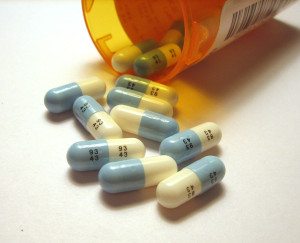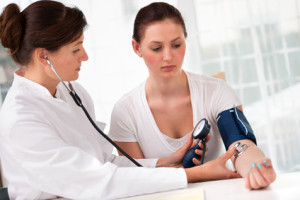Contributor: Crystal Karges, MS, RDN, IBCLC Special Projects Coordinator at Eating Disorder Hope/Addiction Hope
 For countless individuals across the world, depression is a reality that is faced on a daily basis.
For countless individuals across the world, depression is a reality that is faced on a daily basis.
Contrary to the stigmas that may be associated with depression, this is a severe mental illness associated with many debilitating consequences including substance abuse that can lessen overall quality of life if left untreated.
Depressive Disorders – Types of Depression
Depressive disorders are types of mood disorders and can include many different forms, including the following:
- Major Depressive Disorder: Major Depressive Disorder or Clinical Depression is a form of a depressive disorder that includes symptoms of a depression over a two week period. Symptoms that may be experienced include a loss of interest or pleasure in activities/hobbies that were previously enjoyed, fatigue or loss of energy, the experience of a depressive mood (such as sadness, tearfulness, or irritability), loss of appetite and subsequent weight loss, disruptions in sleeping patterns, feeling worthless or guilty, or suicide ideations or attempts.
- Persistent Depressive Disorder: A person who has Persistent Depressive Disorder has likely experienced episodes of Major Depression for at least 2 years. The severity of symptoms may vary but duration is a minimum of two years for the diagnosis of Persistent Depressive Disorder.
- Bipolar Disorder: This type of depressive disorder is characterized by cycling mood changes, including the experience of extreme lows (depressive episodes), and extreme highs (known as manic episodes). This type of disorder is not as common as Persistent Depressive Disorder or Major Depressive Disorder.
- Seasonal Affective Disorder (SAD): Seasonal Affective Disorder is a form of depression that typically coincides with seasonal changes in weather. Many individuals with Seasonal Affective Disorder will experience an onset or trigger of depressive episodes during the winter months and find that this resolves during the spring/summer months.
- Postpartum Depression: Postpartum Depression is experienced by new mothers following delivery of their babies and can be the result of hormonal, emotional, and physical changes.
- Psychotic Depression: Psychotic Depression is a severe form of depression and the individual experiences episodes of psychosis, delusions, or hallucinations.
 Regardless of the form of the depressive disorder, this is not a mental illness that should be taken lightly.
Regardless of the form of the depressive disorder, this is not a mental illness that should be taken lightly.
Depression is more than just feeling “down” or having the “blues”, and if left untreated, depression can lead to many more complications and/or other co-occurring illnesses.
Thankfully there are many proven forms of treatment that have been shown to help individuals who are struggling with these depressive disorders, including psychotherapy, behavioral therapies, and pharmacotherapy.
While it may seem easier to just take a medication, such as an antidepressant, combining medication with behavioral therapy and psychotherapies can be much more effective for the treatment and recovery of the various forms of depression.
Antidepressants are one of the most common medications prescribed by doctors today, as depression is a mental illness that many individuals are dealing with. With any medication comes the risk of side effects, and it is important to understand what these risks might include before starting a new medication.
If you are beginning a new medication for any type of depressive disorder, be sure to ask you doctor about the possible side effects, possible interactions with other substances, and clear instructions for use. If at any point you decide to come off a prescription antidepressant, be sure to ask your doctor about the correct process for weaning.
 Remember that medication alone can only go so far in helping those who are depressed. As a mental illness, depressive disorders result from multiple factors, including biological/genetic influences, environmental factors, psychological/emotional connections and more.
Remember that medication alone can only go so far in helping those who are depressed. As a mental illness, depressive disorders result from multiple factors, including biological/genetic influences, environmental factors, psychological/emotional connections and more.
Medication can help correct some of these concerns but typically cannot address emotional and psychological issues that may be connected to being depressed.
For this reason, it is important to incorporate some form of behavioral therapy in your treatment for depression. This can take place by working with a qualified therapist or counselor, who can help you work through, process, and heal from any underlying issues connected with depression.
Community Discussion – Share your thoughts here!
If you or someone you care for has struggled with depression, what treatments have you found to be most effective? How have you balanced medication use with other forms of treatment, such as behavioral therapies, to overcome symptoms of depression?
The opinions and views of our guest contributors are shared to provide a broad perspective of addictions and co-occurring disorders. These are not necessarily the views of Addiction Hope, but an effort to offer a discussion of various issues by different concerned individuals. We at Addiction Hope understand that addictions result from a combination of environmental and genetic factors. If you or a loved one are suffering from an addiction, please know that there is hope for you, and seek immediate professional help.
Last Updated & Reviewed By: Jacquelyn Ekern, MS, LPC on June 8, 2017. Published on AddictionHope.com
